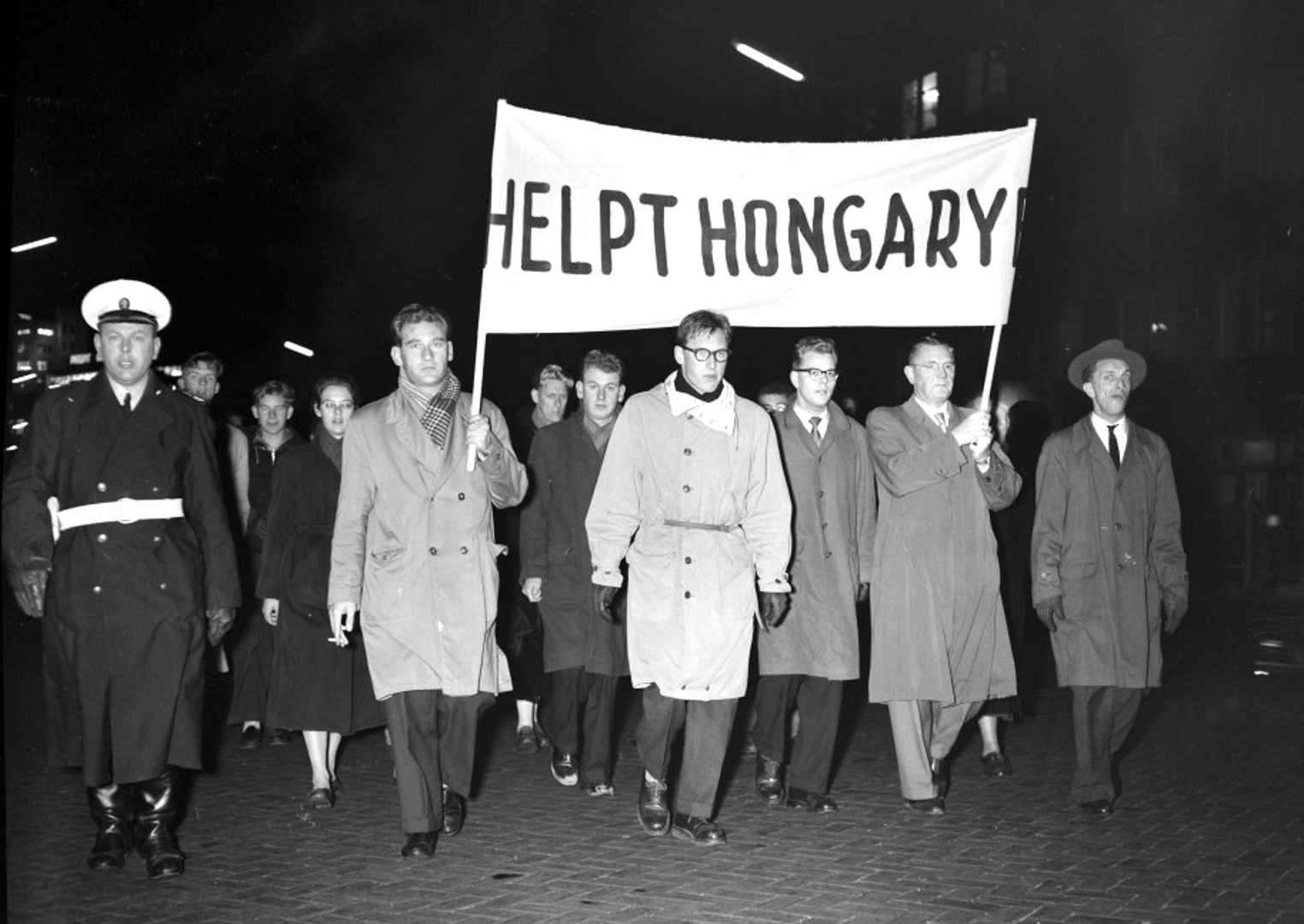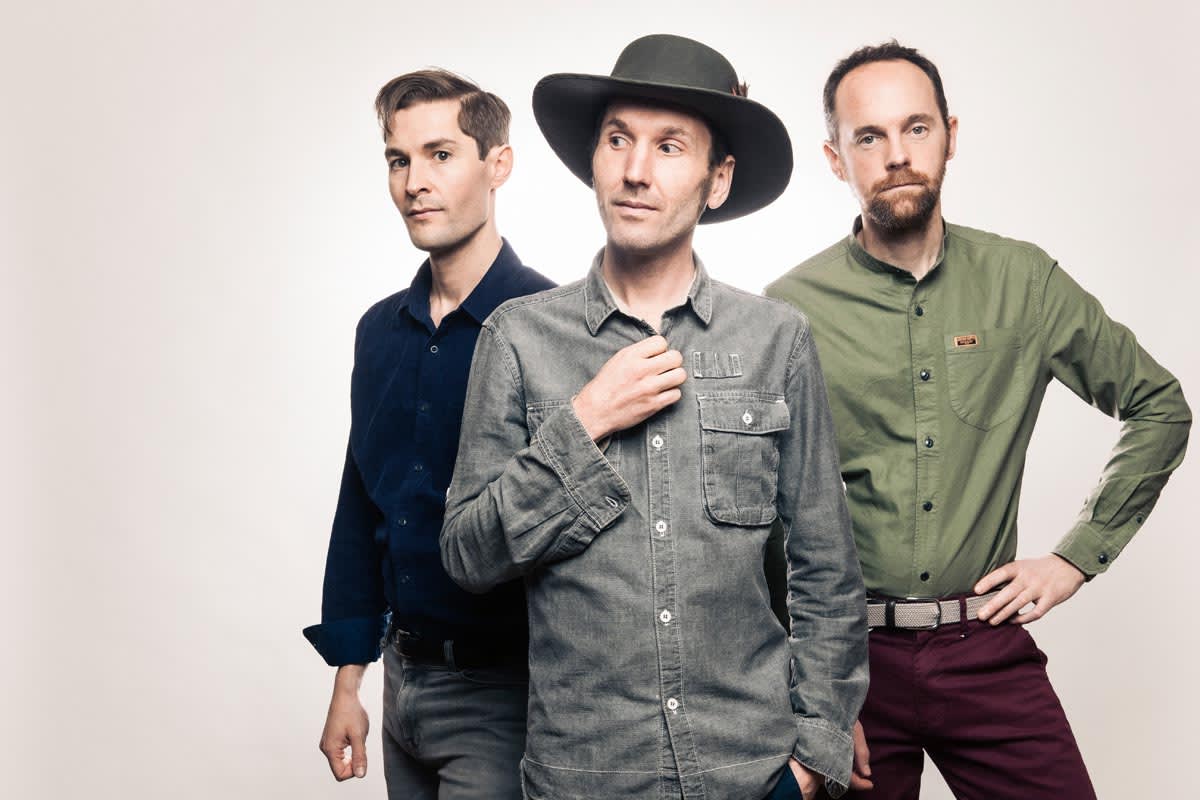When in Hungary a large student demonstration formed into an armed uprising against the Soviet-type Communist regime, some students in Oxford decided “that far away country” needed immediate help.
A 23-year-old student of classics at Balliol College, Robert Oakeshott, decided to fly into Vienna in order to make his way with badly needed medicines into revolutionary Hungary. When word spread about this in Oxford, so many students wanted to join him in this adventure that they had to draw lots in order to qualify for Oakeshott’s companionship.
Their travel costs and that of the medicines were paid by the daily News Chronicle and the pair apparently reached Budapest on 31 October 1956, a few days before the second Soviet military intervention which put an end to the revolution. During their stay in Budapest the Oxonians visited the Law Faculty of the University where they met members of the Students Revolutionary Committee whom they found “calm and dignified”. It seems that they managed to return to Vienna before 4 November for Oakeshott was interviewed by the BBC two days later. (It is interesting to note that in his opinion most Hungarians believed at the time that the Anglo-French intervention at Suez influenced the Soviets in their decision to send more divisions to Hungary to put down the revolution.)
There is also anecdotal evidence of how other Oxford students viewed Oakeshott’s initiative at the time: Alan Bennett made an ironic comment about it many years later. He claimed that some “smart Balliol undergraduates…sent around an appeal for funds, pointing out that a contingent was going from Cambridge, so it was important that Oxford should not be unrepresented”. While this information may have been part of Oakeshott’s tactics whilst fund-raising, it had no basis in reality: Cambridge was completely left behind in the imaginary ‘race’ to visit revolutionary Hungary.
Oakeshott’s expedition to Hungary at that time was not the only initiative in Oxford: a second group was formed in Magdalen College where Michael Korda, Sir Alexander Korda’s nephew studied at the time, and it was Lady Korda (his aunt) who offered a substantial amount of money to the students keen to take medicines to the Haynal clinic in Budapest. Michael Korda was joined by Christopher Lord, Russel Taylor, and Roger Cooper (a nephew of Robert Graves and student of St John’s College, Oxford). The latter became an important member of the team responsible for their travel arrangements: Cooper’s older brother owned a Volkswagen which had been left by him in Brussels, so when the students flew there, they could continue by car to Hungary. They arrived at Győr in Western Hungary on 2 November and, on the advice of Oxford political scientist Peter Wiles whom they met there, saw Imre Nagy’s local representative, Attila Szigethy. He advised them to proceed to Budapest to deliver the medicines to Dr Imre Haynal as soon as possible. Dr Haynal then treated them to a meal and reserved a room for the group in Hotel Astoria where they were awakened by gunfire early next morning.
After witnessing a dramatic street fighting between the Soviets and the insurgents, a few days later the Oxford students found temporary shelter in the British Embassy and left the country in the company of all the British journalists on 11 November 1956.
Neither Christopher Lord nor Roger Cooper (who spoke Russian) could forget their trip to Hungary and as soon as the Oxford Term finished in the first week of December 1956, they began to plan for another visit.
By this time the border with Austria was already closed, so the new trip had to take place via Yugoslavia. As Christopher Lord told in his interview, printed in the magazine Európai Utas, this time his brother Basil (who had already finished his studies in Oxford) decided to join the new expedition. When she heard about it, a first-year student from Somerville College, Judith Cripps, also volunteered. Initially, the boys did not want her company, warning about the dangers of the trip, but Judith (luckily) kept nagging them, offering even more money than her share towards the expenses. Moreover, when she had learned that the group finally accepted her, she got in touch with me, George Gömöri, a member of the first Oxford group of Hungarian refugee students who (unusually from that group) spoke English and who also was a member of the Students Revolutionary Committee in Budapest. Judith specially asked me for a letter of recommendation to my friends at the University and we decided (with my fellow-refugee friend András Sándor) also to give her a report to the Committee about our political activities since we left Vienna.
This second trip took much longer to be arranged. Both Christopher Lord and Roger Cooper spoke Serbo-Croat, and it was in Belgrade, where they spent a week, that they applied for a Hungarian visa. They could not get a tourist visa, but – to their surprise – they were granted a transit visa ‘without a stopover’. Crossing the border at Horgos, the Hungarian border guards could not believe their eyes, they had to telephone to Budapest to let them through. The weather being unusually bad, (a snowstorm hit the icy roads), they were then advised to stop for a night at the city of Szeged. They found an almost empty hotel where the manager was very friendly, inviting them for dinner and afterwards for a drink of excellent Tokay wine in the hotel’s cellar where according to Christopher Lord “he cursed the Russians with gusto”.
Christopher Lord was an adventurous man. He told his friends that apart from the visa they would probably need the approval of the local Soviet commander to enable them to continue their trip. They disagreed, but Lord went ahead nonetheless and asked the first Russian soldier whom he met on the street to take him to the local Commander.
Eventually he reached the general in charge who then exclaimed: “You are the first Englishman I have met! Come inside.” Lord was offered cognac by the General with whom he conversed in mixed German and English and who challenged him to a game of chess. He enjoyed the game (won by the General) and as a consolation prize got from him petrol vouchers. The next day was 15 January, and the Oxonians continued to Kecskemét where they stopped for a coffee at a hotel, creating a crowd of interested Hungarians. Soon afterwards they were arrested by a policeman and at the police station their passports were confiscated. Two days later they were taken to Budapest.
It was bad enough that the security policy found our report to the Students Revolutionary Committee, but even worse was finding a little British military handbook (owned by Roger Cooper) with precise information about the structure and ranks of the Soviet army: that served as proof on the ‘spying activities’ of the British students. The group were incarcerated in the prison at Fő utca, all in separate cells. According to Christopher Lord their food was abysmal, with Judy’s exception as she went on hunger strike for a week which resulted in an instant improvement of her food. They were interrogated by three people, a Soviet, a Hungarian officer and an interpreter but not beaten – with the exception of a slap in the face when Christopher answered a question in an arrogant or flippant tone.
After about 16 days in jail, the charges against them were dropped and they were suddenly released, taken by car to Austria. While in jail they were visited by an official from the British Embassy, but they were not aware of the fact that in the meantime their escapade was raised at the highest level at Westminster, Mr Selwyn Lloyd, the Foreign Secretary reacting to an official note by the Hungarian Ministry of Foreign Affairs.
The Foreign Secretary dismissed the charge of spying against the four Oxonians with the words: “I can state categorically that none of them received any instructions from any Department of Her Majesty’s Government…So far as the other charges are concerned, I think the Hungarian Government are in danger of making themselves look ridiculous”. This may have crossed the minds of the saner members of the Hungarian Foreign Ministry, but the circumstances in which Chistopher Lord and his friends were released from Hungarian police custody was probably due to benign foreign intervention: Lord refers to ‘family connections’ – Judith Cripps’s grandfather Sir Stafford Cripps was British Ambassador to Moscow during World War II and after the war befriended the Indian leader Jawaharlal Nehru. It was the latter who apparently phoned Khruschev: “Let these silly kids go, expel them from the country”. This is just what happened: their expulsion being the first occasion that the vengeful Justice Department of János Kádár had to give way to Western protests.
The whole incident brought instant fame to the four students involved, though they missed an Oxford Term which seriously damaged their academic career. Their press conference in Vienna was a minor sensation, covered by the Time Magazine, featuring a coloured photograph of the ‘Four Adventurers’. Later, Judith Cripps told the author of this article that while she was treated humanely in Hungarian jail, the prison cells were not heated, so she suffered chilblains on her toes. In spite of that, she wished to visit Hungary again in better times. I have no information whether she has ever realised her plans. Christopher Lord, however, went back to Budapest some years later, to be photographed, smiling in front of a grey and sombre jail building.
George Gömöri was born in 1934 in Budapest. He came to the UK in 1956, and between 1969 and 2001 taught Polish and Hungarian Literature at Cambridge. He now lives in London and is attached to SSEES/UCL as a Senior Research Associate.








